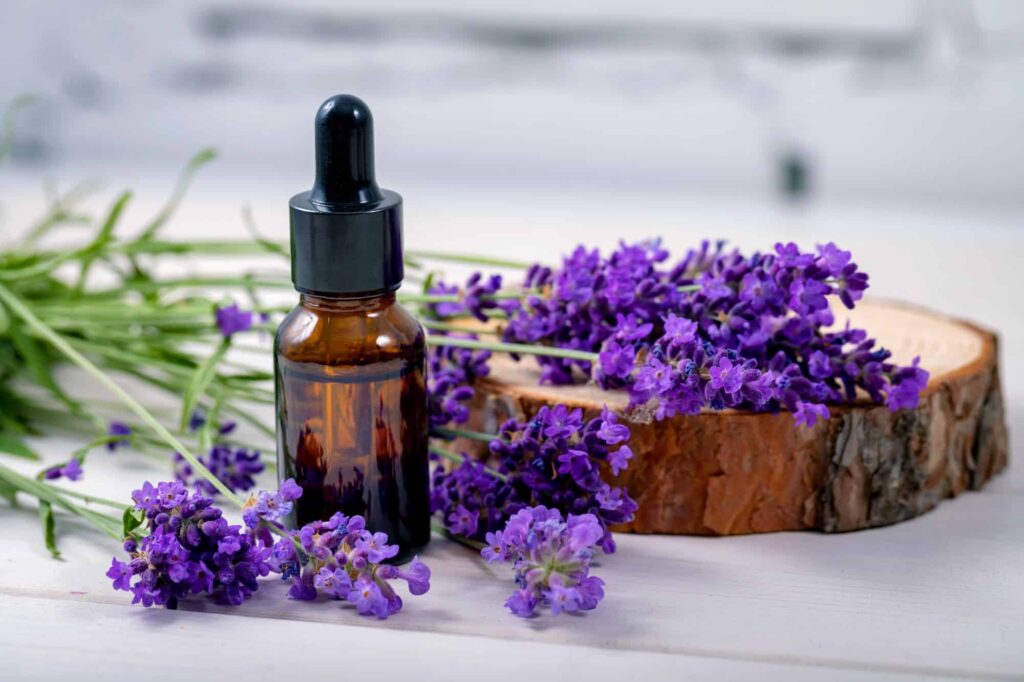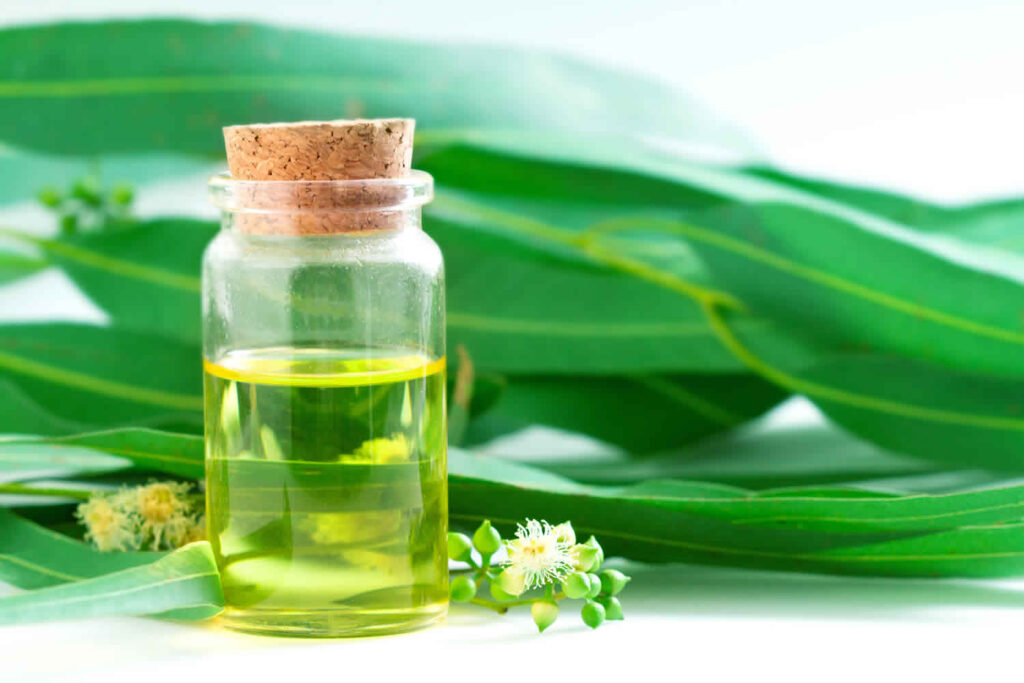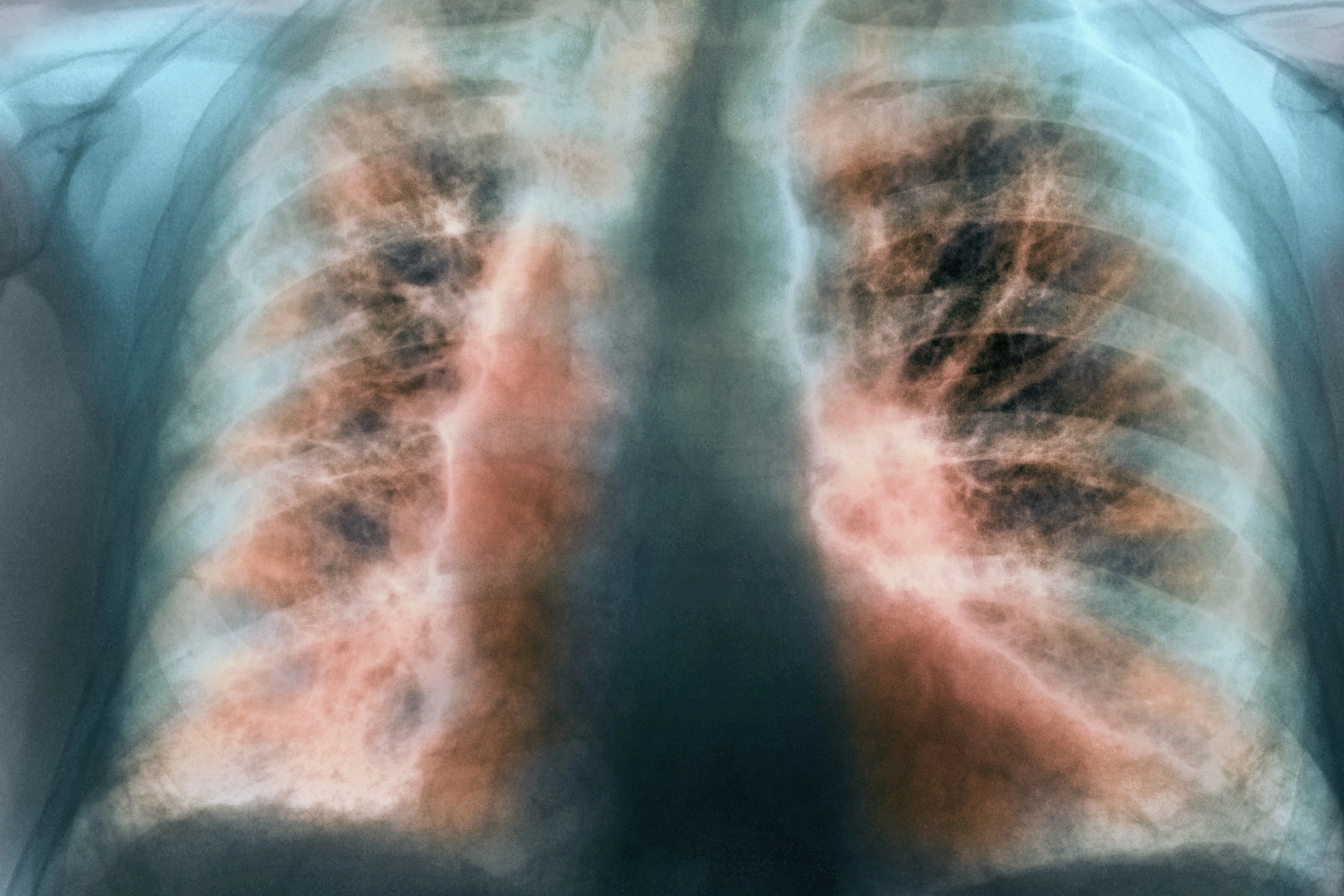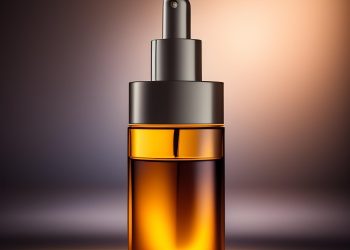Pulmonary fibrosis is a type of lung disease. It occurs when lung tissue becomes damaged and scarred [1].
The damaged tissue makes the tissues around and between the air sacs (alveoli) in the lungs thick and stiff. This way the lung has problems functioning properly [1].
If it persists for a prolonged period, you develop chronic shortness of breath [1].
The condition also comes with dry cough and fatigue.
Although the damage caused by pulmonary fibrosis in the lung is irreversible, some essential oils can help reduce the symptoms and improve your quality of life.
Essential oils may prevent the symptoms of pulmonary fibrosis from recurring as well.
The article reviews the efficacy and uses of essential oils for pulmonary fibrosis, its causes, and more.
Essential oils have a fantastic ability to give relief from pulmonary fibrosis.
These four essential oils are the best when it comes to treating pulmonary fibrosis.
However, ALWAYS use a carrier oil or diffuser oil with the essential oils, or dilute these oils with water if you don’t have a carrier oil.
1. Mandarin Orange Oil
In a study conducted in 2012, mandarin orange oil (Citrus reticulate) was used to see the proliferation and protective effects of human embryonic lung fibroblasts on bleomycin (BLM) induced lung fibrosis in rats [2].
The results showed that different concentrations of mandarin essential oil displayed inhibitory activity on the proliferation of the lung fibroblasts [2].
The reason for this effect is just because this essential oil helps to adjust the unbalance of oxidation and antioxidation and reduce collagen deposition and fibrosis, reducing the symptoms of pulmonary fibrosis [2].
Applying mandarin essential oil is one of the effective methods of getting relief from pulmonary fibrosis.
All you have to do is apply some drops of this essential oil to the chest and inhale the smell. After a while, you will get relieved from the shortness of breath or a dry cough.
2. Lavender Oil
Lavender oil is another beneficial oil for pulmonary fibrosis sufferers as this oil acts as an antioxidant.
Due to its antioxidant property, it helps the body fight against the progression of the disease, especially in the lung.
A study conducted in Northern Israel in the year 2010, investigated the effects of aromatic essential oils (e.g., Eucalyptus essential oil along with lavender oil) to treat upper respiratory infections [3].
The essential oils were sprayed and applied to sixty patients five times a day for several days [3].
The spray application of aromatic plants reported in this study brought about a significant and immediate improvement in symptoms of upper respiratory ailment [3].
The main result was the reduction of the most debilitating symptom (a sore throat, hoarseness, or a cough) [3].
Hence, the lavender essential oil is highly beneficial for such respiratory problems.
RELATED: 11 Health Benefits of Lavender Oil That You Should Know
3. Eucalyptus oil
Eucalyptus, a piney-smelling plant is a miracle oil that acts as an antiseptic, incorporated into many treatments for its incredible benefits.
Eucalyptus oil proves to be highly useful for aromatherapy in respiratory ailments [4].
The dominant constituent in this essential oil is 1,8-cineole (eucalyptol), found to reduce pro-inflammatory mediators and enhance phagocytic activity, and help in pathogen clearance in the respiratory tract [4].
Eucalyptus essential oil also acts as a decongestant, an expectorant, and provides relief from pain.
It also helps people to create a healthy immune system.
The best way to take maximum benefits of this essential oil is by Inhaling vapor made with the essential oil. You can also use a rub containing eucalyptus oil, which will produce the same effect.
RELATED: How to Get Rid of Chest Congestion: 17 No-Fail Home Remedies!
4. Frankincense Oil
Frankincense, derived from the Boswellia tree, provides excellent antiseptic and anti-inflammatory benefits.
This essential oil contains certain terpenoids, the main component of frankincense, that exhibits antioxidant, anti-inflammatory, and anti-tumor activities that helps in the treatment of sinusitis, asthma, and chronic obstructive pulmonary diseases [5].
Hence, Frankincense oil is ideal for any respiratory problem.
Just apply to your nose or directly on your chest and see it work immediately.
You can apply the oil directly to your skin as it is very mild and dilution isn’t a must when it comes to frankincense.
RELATED: 9 Best Essential Oils for Asthma Attacks + (How to Use Them)
Homemade Essential Oil Balm for Pulmonary Fibrosis
Essential oil balms are very useful and easy to make and store when you encounter a sudden cough or difficulty with breathing-related problems due to pulmonary fibrosis.
Making this kind of balm comes in handy in an emergency situation. So let’s see how to make it.
What You Will Need:
- Any of the essential oils listed above
- Carrier Oil (e.g., coconut oil)
- Cocoa Butter
Recommended Directions:
- Take 10-20 drops of the essential oil
- Add about 20-25 drops of carrier oil
- Mix it with warmed cocoa butter
- Store it in a cool place till the butter hardens
- Apply a bit of this mixture on your chest or your nose when you encounter any pulmonary symptoms to get immediate relief!
RELATED: 17 Benefits of Cocoa Butter You Need to Know
What Causes Pulmonary Fibrosis?
A variety of factors cause pulmonary fibrosis such as environmental factors, radiation treatments, and certain medications.
Environmental Factors
Long-term exposure to some toxins and pollutants can damage the lungs. These include:
- Silica dust
- Hard metal dust
- Coal dust
- Grain Dust
- Bird and animal droppings
Radiation Treatments
Some people who receive radiation therapy for certain types of cancer such as lung or breast cancer, show some signs of lung damage a few months after the procedure. However, the severity of the damage depends on:
- Amount of radiation and chemotherapy exposed to the lungs
- Part of the lung exposed to radiation
Medications
Many medications can damage your lungs such as:
- Heart medications such as amiodarone ( Cordarone, Nexterone, Pacerone)
- Antibiotics such as nitrofurantoin (Macrobid, Macrodantin, others) or ethambutol
- Anti-inflammatory drugs such as rituximab (Rituxan) or sulfasalazine (Azulfidine)
When to See a Doctor
Shortness of breath is one of the primary signs of pulmonary fibrosis. But the sign can indicate other medical conditions too. You should visit a doctor for proper diagnosis and treatment options for pulmonary fibrosis. A pulmonologist or lung expert may discuss several factors while diagnosing your condition:
- If pulmonary fibrosis exist in your family history or not
- The duration you have been suffering from the symptoms of the condition
- Whether you smoke or consume any other drugs
- Your medical history
- If your job involves anything that may affect your breathing and irritate your lungs
A doctor may run several physical tests to examine the state of your lungs before he prescribes you the best treatment options.
RELATED: 7 Best Essential Oils for Fibrocystic Breasts Treatment
Bottom Line
Although the effects of pulmonary fibrosis are irreversible, using essential oils can provide relief from the recurring problem.
Regular usage of these essential oils will help to decrease the proliferation of the disease and might even stop it from causing any severe damage ahead.
So carry a little rollerball of essential oil in your purse or pocket at all times. It is also recommended that you seek medical attention as soon as you detect the symptoms. Essential oils are only complementary remedies with prescribed medications.
READ NEXT: 15 Essential Oils for Bronchitis That Work





